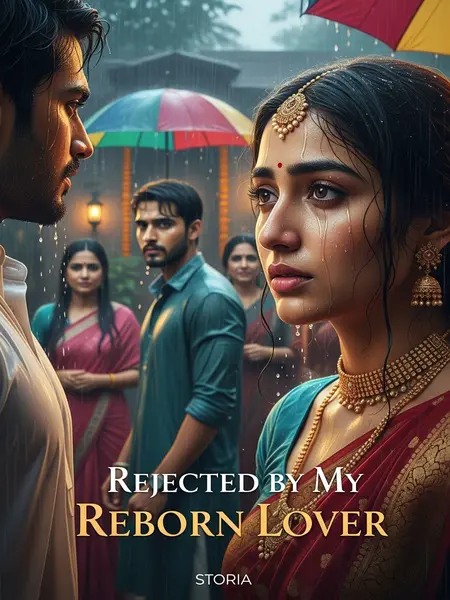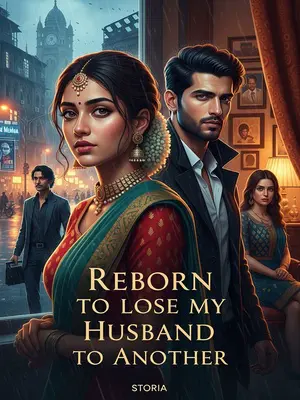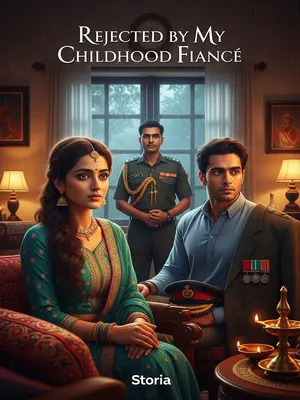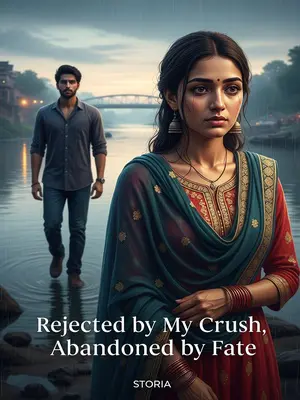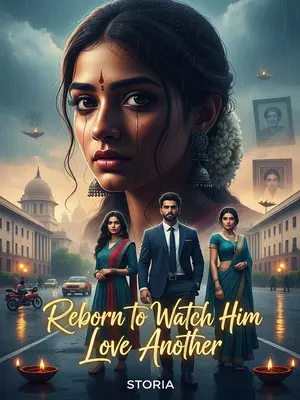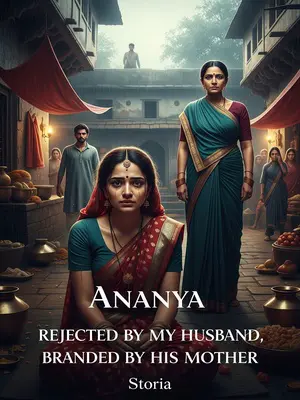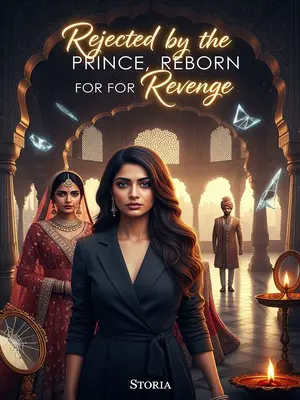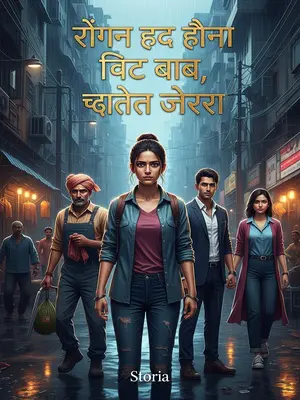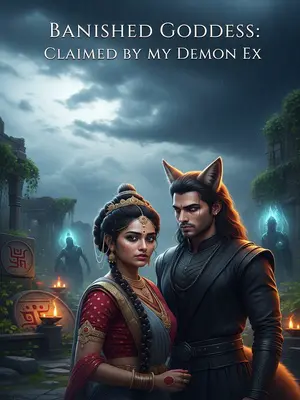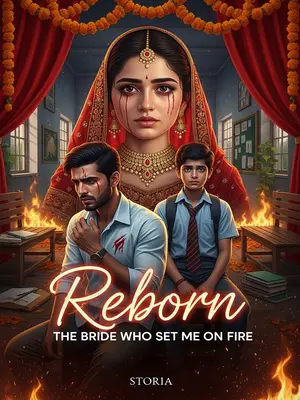Chapter 3: A Suitor’s Challenge
Arjun did not answer.
He stood frozen, caught between guilt and duty. The silence between us stretched, heavy with everything unsaid. I wanted to reach for him, to shake him, but my hands remained at my sides, fists clenched in helplessness.
He left only one sentence: “Miss Sharma is naturally intelligent and pure as gold. The failure of this marriage is entirely my fault.”
The formality of his words stung more than any insult. I saw Amma flinch; Papa’s anger was replaced by wounded pride. My own heart twisted, his praise now a blade instead of a balm.
With that, he turned and left in haste, almost running out the door.
The door slammed behind him, leaving an ache that echoed through the hall. Amma sat heavily on the sofa, Papa muttered under his breath, and I stood in the centre of the room, alone as I had never been before.
The next day, the Singh family sent a messenger with a contract and gifts.
The gifts—boxes of kaju katli, a silver tray, sandalwood incense, and a packet of Haldiram’s namkeen—arrived before noon. Our maid eyed them with curiosity; the neighbours tried to peek in through the window, eager for the latest twist in the tale.
But it was not a marriage contract—it was a rakhi proposal. Arjun’s uncle and aunt proposed that he tie rakhi with me, making me his sworn sister.
The shock rippled through our home. Rakhi, of all things! The ultimate severing of hope. Amma clutched her head, muttering, “Ram Ram, what will people say?” while Papa’s face darkened, his pride wounded deeper than any family feud. The servants exchanged glances, unsure whether to pity or judge me.
Papa was incensed. Having always hated being looked down upon as a mere army man, he seized his walking stick and drove the Singh family out.
He stormed into the courtyard, voice booming. “You insult my daughter and now want her to tie rakhi? Get out! Never set foot here again!” The aunties gasped, the children scattered, and even the usually unflappable Singh uncle looked chastened as they retreated.
Before leaving, Arjun’s aunt clasped my hand and wept.
Her grip was desperate, nails digging into my palm. Her sari smelled of sandalwood and old tears. “Beta, forgive us. Arjun has lost his mind. You are a good girl, a diamond for any family. One day, you will find happiness, I promise,” she sobbed, pressing a silver coin into my palm.
“Good child, it is Arjun who is unworthy. Our Singh family has failed you…”
Her words blurred into tears, but I nodded, too numb to reply. Her blessing, though sincere, felt hollow in the echoing silence.
And so, after years of friendship, the Sharma and Singh families parted ways.
Old photos were tucked away, shared memories locked up with the wedding jewellery. The neighbours shook their heads, calling it a tragedy. I only felt an emptiness, as if someone had scooped the inside of my chest hollow.
But because the Singh family had come, at least there was an explanation for what had happened between Arjun and me.
The colony gossip mills churned, but at least I was spared open slander. My pride, battered but not broken, remained intact. Amma clung to this small mercy, repeating, “Thank God they didn’t speak ill of us.”
When gossips inquired, the Singh family only said that Arjun and I had always been like siblings, never once slandering my name.
They maintained the story: “Just like brother and sister, always together, but never destined for marriage.” The story spread through the chawls, and while whispers continued, no one dared question my virtue.
Thus, the matter was settled.
The neighbourhood moved on, as it always did. New scandals replaced old ones; soon, our story was just another faded memory among many.
Three days later, news arrived from Delhi: Arjun was to be sent to the border.
Papa read the telegram aloud, voice proud but sad. “The nation needs him. He will serve at the border.” The words hung heavy in the air, the shadow of danger darkening every room.
Arjun and I were both from army families, but because the Singh clan was filled with loyal martyrs and he was their only grandson, he had not joined the army at seventeen in my previous life.
Amma had always said, “Beta, the Singh family has given enough to the country. Arjun will go only after he settles down.” In the old life, that had been true. Now, all the old assurances felt like dust.
It was only after we married and had our first son that he went to the border. I watched over our child, worrying day and night for his safety.
Every time a news bulletin played, my heart skipped a beat. The pressure cooker would whistle, the neighbours would gossip, but my ears strained for news from the border. I had clung to my son, my only comfort.
But now…
Now we were not married, had no children, and there was no cause for such worry—yet he still chose to join the army.
The irony was bitter. He went to the frontlines, not for us, not for love, but for something I could no longer understand. My prayers, once for his safety, now felt hollow and directionless.
A sharp pain shot through my palm. Looking down, I realised Ma was pinching me.
She saw the faraway look in my eyes and pinched, just hard enough to bring me back. “Priya! Pay attention,” she hissed. Her eyes darted to the living room, where a guest waited.
She frowned and whispered, “The young master of the Mehra family is here. Why are you still daydreaming?”
I blinked, focusing on the scene before me. The Mehra family was here—for me. Amma’s voice softened, “At least look at the boy, na? Don’t embarrass us more.”
I snapped back to myself and glanced at the figure behind the curtain.
He stood just so, a silhouette framed by the fading sunlight. The blue of his kurta was rich and deep, like the sky after a storm. I straightened my dupatta, forcing my mind to the present, steeling myself for yet another chapter.
He wore a blue kurta, tall and upright as a bamboo painted in ink. He lacked Arjun’s boldness, but exuded a gentle, scholarly air.
There was a calmness about him—a stillness that spoke of patience and quiet strength. He fiddled with the rim of his teacup, eyes lowered, lips set in a gentle line. The difference from Arjun was striking, almost jarring.
This was none other than Kabir Mehra, the second son of the Mehra family.
His shoes were left neatly at the threshold, socks slightly faded—a small sign of old money now worn thin. Amma had praised his handwriting, Papa had admired his knowledge of history. He was not flashy, but there was substance in his silence.
The Mehra clan was not prominent, and no one among them held office at court. Their only distinction was that an ancestor had once been a renowned professor, giving them a lingering reputation in the city.
The city remembered his great-grandfather’s lectures at St. Xavier’s, the plaque outside the college gate. Now, all that remained was the echo of that old respect, the family home weathered but still proud.
By Kabir’s generation, all that remained was a good name and an old family home.
No property disputes, no scandals, just the slow fading of a once-bright legacy. But there was dignity in their simplicity, a certain comfort in their unpretentiousness.
“This second son of the Mehra family cleared the UPSC this year. He is in the prime of his youth and writes beautifully. How is he any less than Arjun?” Ma whispered, eager for me to accept the match.
Her words, both cajoling and proud, reached my ears like a half-remembered song. “He has a future, Priya. A safe, stable life—no drama, no heartache. Isn’t that what you want now?” Amma’s eyes searched mine, her hope barely concealed.
Papa, a blunt man of army background, had always respected the Mehra family. If not for Arjun, he would have arranged a marriage with the Mehras long ago.
He coughed, clearing his throat. “Kabir is a good boy. Honest, hardworking. Respectable family.” His words were plain, but his approval was rare and not lightly given.
So now, with Arjun gone, Kabir was the first suitor to come to mind.
It was almost automatic—a safe choice, a good match on paper. Yet my heart refused to settle, refusing to be traded so easily.
But as I looked at the man before me, I only felt a wave of frustration.
Not because of who he was, but because my soul still throbbed with wounds that had not yet healed. My mind raced, restless, unwilling to be tied to fate’s whims again.
Not because of who he was, but because of everything that had happened and all the words I had heard.
The echo of old pain, the sting of betrayal, the suffocation of society’s expectations—all pressed in on me. I clenched my fists, nails biting into my palm, steeling myself for what was to come.
“Why must a woman marry?”
The question rang in my head, rebellious and raw. I could almost hear my dadi’s voice, admonishing me to lower my eyes, to never question tradition. But I was no longer willing to silence my own truth.
“Why is it considered shameful if she cannot find a good husband?”
The weight of the world pressed down, suffocating. The whispers, the pitying glances, the constant reminders that my worth depended on someone else. I felt anger bubbling up, sharp and cleansing.
“Why must I, skilled with rifle and bow, spend my life in some man’s kitchen?”
I remembered the thrill of hitting a bullseye at the shooting range, the pride on Papa’s face, the envy of the neighbourhood boys. Was that all to be traded for a lifetime of kneading dough and counting lentils?
If there were true affection, I would accept it. But clearly, there was neither love nor loyalty.
My heart longed for a bond forged in honesty and respect, not in fear of scandal. I resolved, then and there, that I would not settle for anything less, not now, not ever.
These thoughts galloped through my mind like wild horses.
I felt them surge, untamed and wild, threatening to spill out and sweep away the last of my restraint.
I knew such words were rebellious and should not be spoken, but before I realised it, I had already voiced them all.
The words tumbled from my lips, raw and unvarnished. Amma gasped, Papa’s eyes widened, and even Kabir looked up, startled. But I could not take them back; the truth was out, and I would not hide it.
Ma’s hand, halfway to covering my mouth, froze in midair. She scolded me softly, exasperated: “You don’t know the rules.”
Her scolding was half-hearted, more worry than anger. “Priya, bas karo. Don’t talk like this in front of others.” Her voice shook, but I saw the glimmer of pride beneath her fear.
Behind the curtain, Kabir’s shoulders trembled slightly. For a long while, he said nothing.
The silence stretched, thick and tense. Kabir’s eyes were unreadable, his hands steady, his breathing shallow. I wondered if I had ruined my last chance at happiness, or if, perhaps, something new was possible.
Ma sighed. “Kabir beta, please don’t mind her. My daughter has been spoiled and speaks without thinking. Please don’t take offence.”
She tried to smooth things over, offering Kabir more chai, her voice anxious. “She’s a good girl, really, just... upset these days. Please, don’t judge her.”
Kabir sat upright, holding his chai cup, silent.
For a moment, I thought he might walk out, insulted. The clock ticked, the ceiling fan whirred, and the city outside carried on, oblivious to the storm in our living room.
I almost thought the marriage proposal was over, when at last he spoke:
He set down his cup with deliberate care, meeting my gaze for the first time. There was no anger, only a quiet thoughtfulness, a respect that made my breath catch.
“Miss Sharma does not speak rashly—her every word is valuable.
“This world has always treated women more harshly than men. Miss Sharma’s insight and awareness are rare and precious.
Kabir’s words were measured, gentle, and yet they cut through the tension like sunlight breaking through monsoon clouds. Amma exhaled, Papa’s shoulders eased. For the first time in days, I felt hope stir—a small, fragile thing, but real.
“But as for whether there is a broad road in this world for women to walk, that depends on…”
Kabir paused, his gaze steady. He looked at me—not with pity, but with a quiet challenge, as if daring me to imagine a different future.
